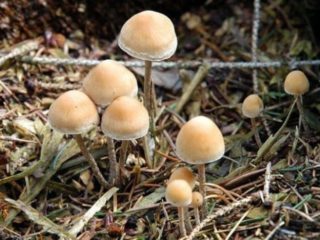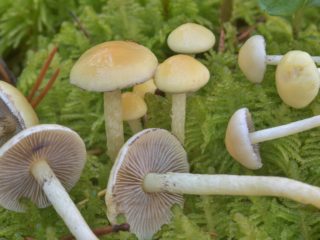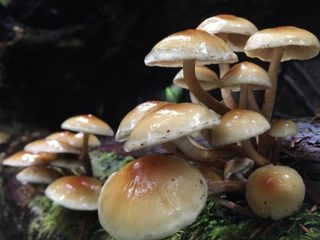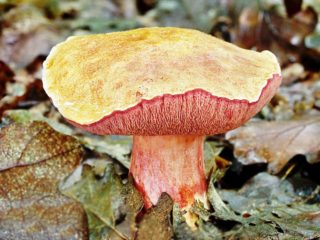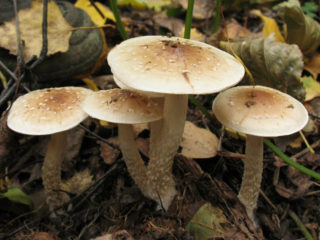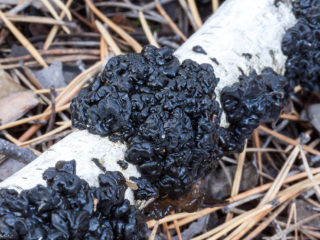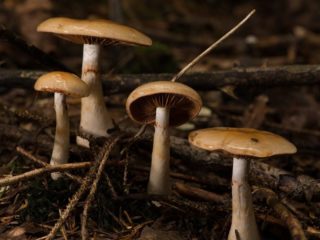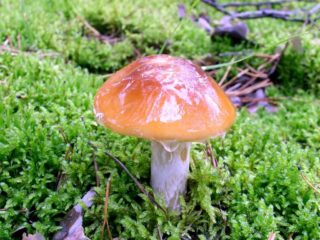Content
The long-legged false honey fungus, elongated hypholoma in biological reference books has the Latin name Hypholoma elongatipes. Mushroom of the genus Hyfoloma, family Strophariaceae.

An inconspicuous mushroom with a disproportionate structure of the fruiting body
What does the long-legged false honey fungus look like?
Small caps of medium diameter - up to 3 cm, are located on thin straight legs, the length of which can reach up to 12 cm. The color changes during the growing season; in young specimens the color is light yellow, then becomes ocher. Mature false honey fungus is colored in olive tones.

Grows in small groups of no more than 2-4 copies
Description of the cap
At the beginning of growth, the upper part of the fruiting body is cylindrical in shape with a point in the center. Then the cap opens and becomes hemispherical, and at the end of the growing season it becomes flat.
External characteristics:
- the color is not uniform, in the central part the color is darker;
- the surface is smooth with radial vertical stripes, along the edge the remains of the bedspread are noticeable in the form of a wavy fringe;
- At high humidity, the protective film becomes covered with mucus;
- the hymenophore is lamellar, the arrangement of the plates is sparse, not extending beyond the cap with a clear boundary near the stalk. The color is yellow with a gray tint or beige.
The pulp is thin, light, brittle.

Along the edge of the cap there are plates of different lengths
Description of the leg
The location of the leg is central, it is quite long and narrow, growing upright. The structure is fibrous, hollow, and fragile. The color is light yellow, whitish with a gray tint in the upper part, darker at the base. In young specimens the surface is finely fleecy; by maturity the coating falls off.
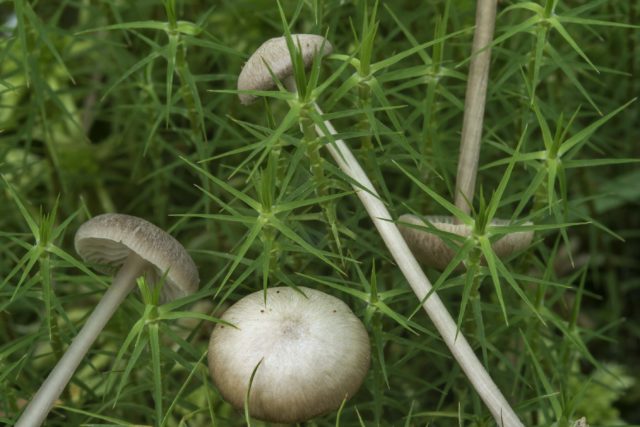
The leg is of the same diameter along its entire length, possibly slightly narrowing upward
Where and how does the long-legged false honey grow?
The main concentration of the species is in mixed or coniferous forests, in wetlands. Long-legged false honey fungus grows among a dense moss layer on acidic soils. Fruiting is abundant. The fruits are found singly or in small groups, occupying quite large areas. The long-legged false honey fungus is common in the forests of the Leningrad region, the central and European parts.
Is the mushroom edible or not?
Hyfoloma elongata is in the category of inedible and poisonous mushrooms.False foam should not be consumed raw or after any type of processing.
Doubles and their differences
The double of Hypholoma elongata is considered to be the moss false foam. The fruit body is larger, the cap can reach up to 6-7 cm in diameter. The stem is also long and thin. The color of the fruiting body is brown with a greenish tint. The double is inedible and poisonous.

The surface of the cap is finely scaly, covered with a slippery coating
The sulfur-yellow honey fungus is a poisonous and inedible species. Grows on stumps and rotten dead wood. Forms dense colonies. The stem is thick and short, the color of the fruiting body is yellow with a lemon tint.

The upper part of the mushroom is dry with a pronounced dark spot in the center
Conclusion
Long-legged false honey fungus is a poisonous mushroom and is not suitable for any processing method. Grows on moist acidic soil, moss cushion. Fruits from June to October in all types of forests where there is wetland.
